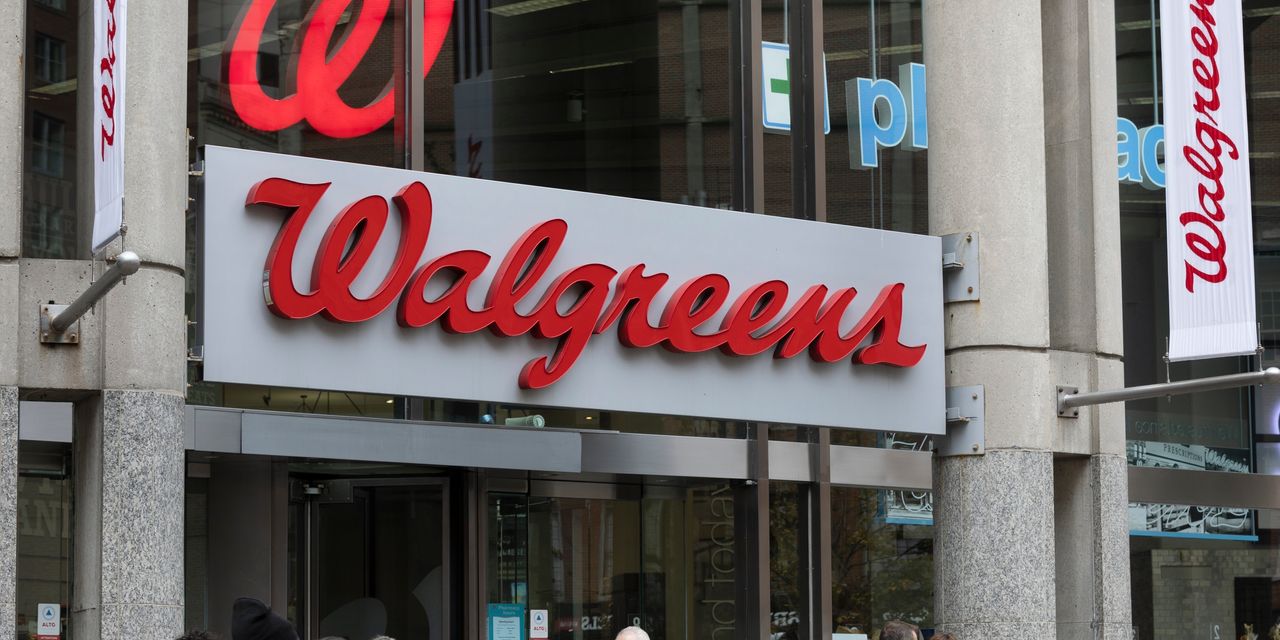Shares of Walgreens Boots Alliance Inc.
WBA,
traded near their lowest levels since 2010 on Tuesday as skittish consumers, along with declining rates of COVID-19 vaccines and testing, dampened the company’s full-year outlook.
The drugstore chain and healthcare-services company reported fiscal third-quarter net income of $118 million, or 14 cents a share, down from $289 million, or 33 cents a share, in the year-earlier period. Excluding nonrecurring items, adjusted earnings per share of $1 missed the FactSet consensus of $1.07. Sales rose 8.6% to $35.42 billion, above the FactSet consensus of $34.32 billion, amid strength in the company’s U.S. Healthcare business.
Consumers are “prioritizing value in response to a more uncertain and challenging economic environment,” Walgreens Boots CEO Rosalind Brewer said on a call with analysts Tuesday, citing the strains of higher inflation and interest rates and lower Supplemental Nutrition Assistance Program, or SNAP, benefits — part of the unwinding of pandemic-related assistance. Another pandemic tailwind dropped sharply, Brewer noted, as Walgreens administered just 800,000 COVID-19 vaccines in the third quarter, down 83% from a year earlier.
Those factors have tarnished the full-year outlook, Walgreens said, as it trimmed fiscal 2023 adjusted earnings per share guidance to $4-$4.05, from $4.45-$4.65 previously.
Walgreens shares were down as much as 10% on Tuesday morning and have dropped 23% in the year to date, while the S&P 500
SPX,
has gained 13%. The results also weighed on competitor CVS Health Corp.
CVS,
whose shares were down 1.8% on Tuesday.
Walgreens has trimmed its forecast for COVID-related services, Brewer said on the call Tuesday. The company expects to administer 9 million to 10 million COVID vaccines next year, in line with a typical flu season, compared with the 12.5 million COVID vaccines expected to be administered in fiscal 2023, Brewer said.
Walgreens boosted its cost-cutting program’s target savings to $4.1 billion, from $3.5 billion previously. That includes $800 million in savings in fiscal 2024, Brewer said.
A milder respiratory-ailment season also crimped profits in the third quarter, Walgreens said, trimming the number of visits to CityMD, an urgent-care provider that Walgreens-backed primary-care provider VillageMD picked up last year as the company looks to expand into patient care. Competitors have made similar moves: CVS Health earlier this year completed its acquisition of health-services company Signify Health.
Walgreens is also tackling an industrywide shortage of pharmacists, with pharmacy hours reduced at some stores, but is returning about 300 stores to normal pharmacy operating hours, the company said.
Read the full article here



